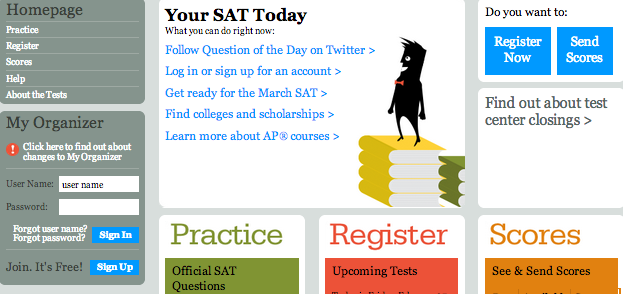The Common Core Should Be Eliminated
February 13, 2014

For those of you who are unaware, the Common Core is a set of national standards for U.S. public schools that strives to “provide a consistent, clear understanding of what students are expected to learn, so teachers and parents know what they need to do to help them.” Yes, once again, the American education system is being hung out to dry by the federal bureaucracy as school districts all across the country are trying to clean up after the No Child Left Behind Act. Now they are being assaulted with programs such as Race to the Top and the Common Core.
Education is mentioned nowhere in the United States Constitution—but there is a very good reason for this. The architects of the Constitution gave the right of education to each individual state to craft and design what they saw as fit on a local, more specialized level. However, as we have seen in recent decades, the federal government cannot stay out of state matters.
Bureaucracy tends to move at a snail’s pace. The problem with education is not the teachers, the children or the janitor’s retirement fund. The problem with education is that the implementation of the Common Core is becoming too political. States all across the country then neglect the feedback from teachers, children and janitors and focus all of their efforts on pleasing the federal government. This behavior is reminiscent of how someone would react to bribery, but I digress. Instead of innovation coming from a local, specialized district in complete control of their actions, the pressure is now driving down from the top, creating an environment politicians are familiar with, but that is not conducive to education.
Bureaucrats and politicians cannot effectively encourage intellectual curiosity; it must come from inspirational educators whose main goal is to create an environment where the student feels a reason to ask questions and to learn. Curriculum mandates can reign down from heaven on every school for centuries, but until students find a purpose in education and their own motivation to learn, all of that paper amounts to nothing. Education needs to move from being a form of political leverage to a freedom that every human can access.
The amount of time and money (including the unfunded mandates for districts) that is being poured into the Common Core is counterproductive. Instead of reallocating resources and energy to a plan that would foster local growth, we continue to play an ongoing game of Monopoly with student’s education in which the Federal Department of Education owns the blue spaces.
On a more personal level, the New York State Senate and Assembly said on Tuesday, Feb. 4 that they will “seek a two-year pause on using Common Core-based tests in evaluating teachers and placing students.” These are all signs that local grassroots democracy is trying to take back control of their right to education.
Although it is too early to clearly judge the academic results of the Common Core, we have learned from the past that politically driven national curriculums have little positive effect. British politician Douglas Carswell recalls, “We’ve had 30 years of highly prescriptive, top down curriculum-based teaching in Britain. It has done little to diminish enormous differences between schools.” He also commends bilingual Canada for “coping” without a national teaching standard.
Here in America, we are also seeing evidence that a national curriculum simply doesn’t work. For example, according to 2011 education records, Virginia and Nebraska (two states that opted out of the Common Core) both outperformed California and New York in Grade 8 math and reading.
Additionally, the consensus among the educators who have spoken to me regarding the issue is astounding. All of them feel these new regulations are putting pressure on them to tend to other work rather than focusing all of their efforts on becoming the best they can be at their craft. They are being marginalized on the basis of students’ performance on rigorous tests created by faceless bureaucrats who probably would not know a classroom if they walked into one.
Students then are inadvertently detached from their teachers, which hurts relationships and further pushes the meaning of education from the student. Education runs off inspiration and passion, and the state is supplying neither of those.









